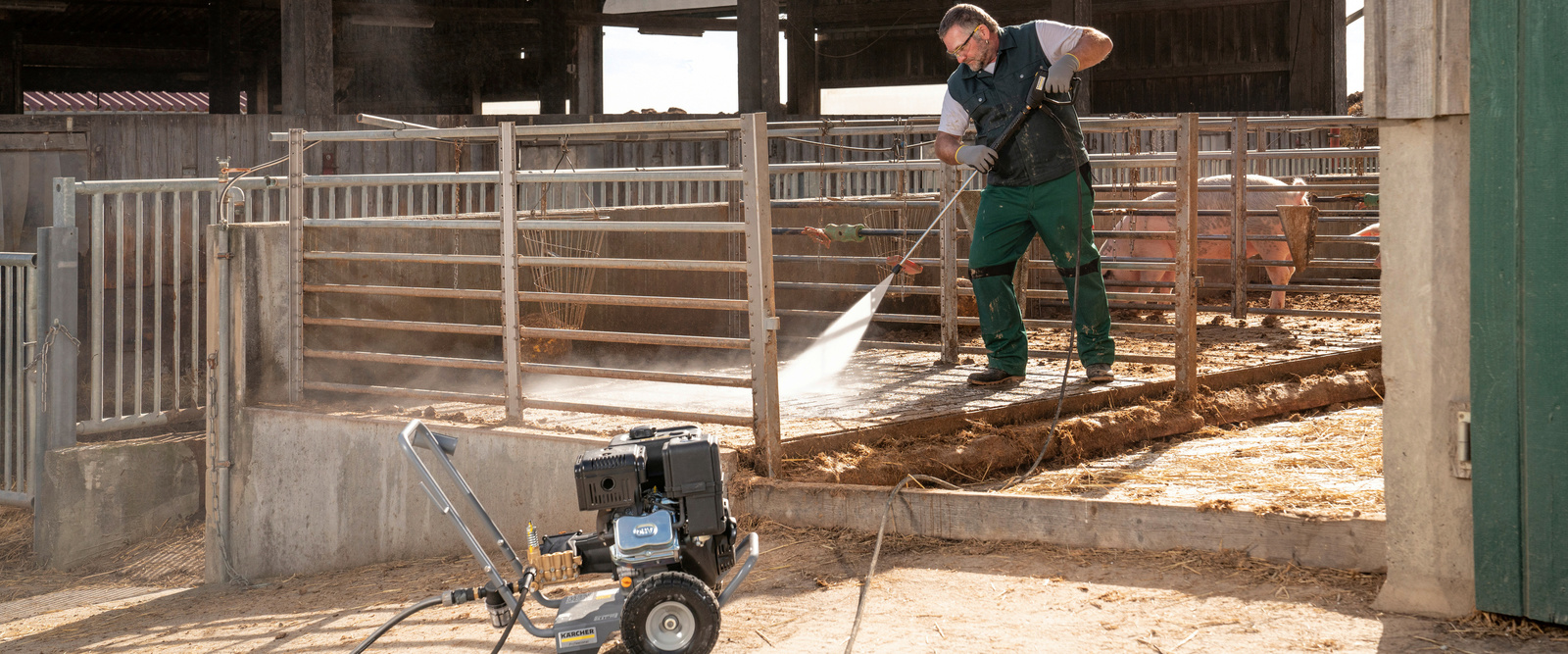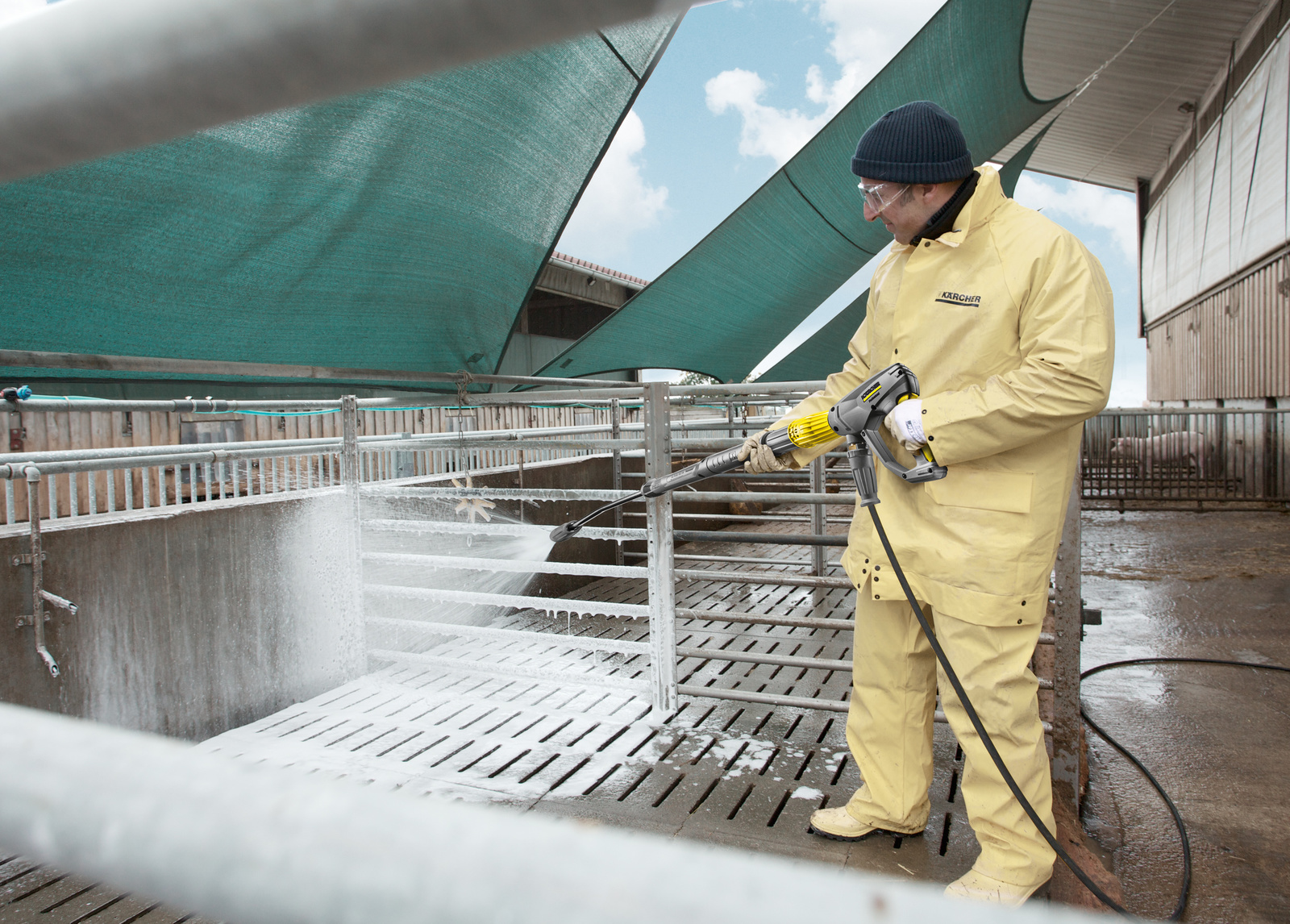Prevent dangerous animal diseases through hygienic cleaning
Immaculate hygiene is an essential part of good biosecurity on a farm, and is an crucial prerequisite for effectively protecting livestock against notifiable animal diseases such as African swine fever or avian influenza. Professional cleaning equipment and systematic routines help livestock farmers in maintaining high standards of cleanliness and reducing the likelihood of diseases breaking out.

Fatal epizootics
Animal diseases are usually transmitted directly through wildlife carriers or indirectly through transport or feed. They can have devastating economic and health consequences for animals and humans. A disease outbreak can put livestock survival at risk, and in some cases, the disease can be transmitted to humans. Through proper cleaning on a farm, farmers can play an important role in protecting their livestock and preventing the spread of disease.
Serious viral infections in animals often fatal - such as African swine fever, for example, which affects both wild and domestic pigs. Avian influenza is also highly contagious and usually fatal. Once it has broken out, the animals must all be slaughtered and there are corresponding economic losses for this. Due to the high mutation rate and the lack of vaccines that can be used in practice, the risk of the virus spreading to humans is also ever-present. Foot-and-mouth disease (FMD) is one of the world's most economically devastating animal diseases. This highly contagious infectious disease primarily affects cattle, pigs, sheep and goats. The economic damage caused by FMD can be devastating, which is why effective prevention is essential to preserve livestock. All of the above diseases are notifiable animal diseases.

The key to preventing animal disease: Biosecurity
Once an epizootic disease has broken out, the consequences are severe. Therefore, livestock farmers ought to focus on prevention. The key to this is biosecurity - a task that extends from the planning of operating facilities and conduct of employees to meticulous cleaning with suitable equipment.
To successfully prevent outbreak of animal disease, the first thing to do is to check how the farm is organised. For example, who has access to the premises and barns, where are vehicles allowed to drive, stop and load or unload, where and how are feed and operating supplies stored? How is good hygiene maintained? Do you use written plans and instructions, implement control by supervisors, check fences, doors and gates, or use cameras and security staff? Here are starting points to ensure compliance with your hygiene regulations.
Hygiene measures on a farm need to be inspected. This is because a high level of biosecurity requires proper cleaning and disinfection of the barns and all equipment and machinery which come into contact with animals. Cleaning may need to carried out in the barn units and associated rooms, for example by strictly separating them into a ‘dirty’ zone and a ‘clean’ zone.
The final step is documenting all your measures as this is transparent and traceable. It also provides an overview to keep cleaning efforts manageable - even with high biosecurity standards and therefore ensure the best possible protection of the animals on the farm.








